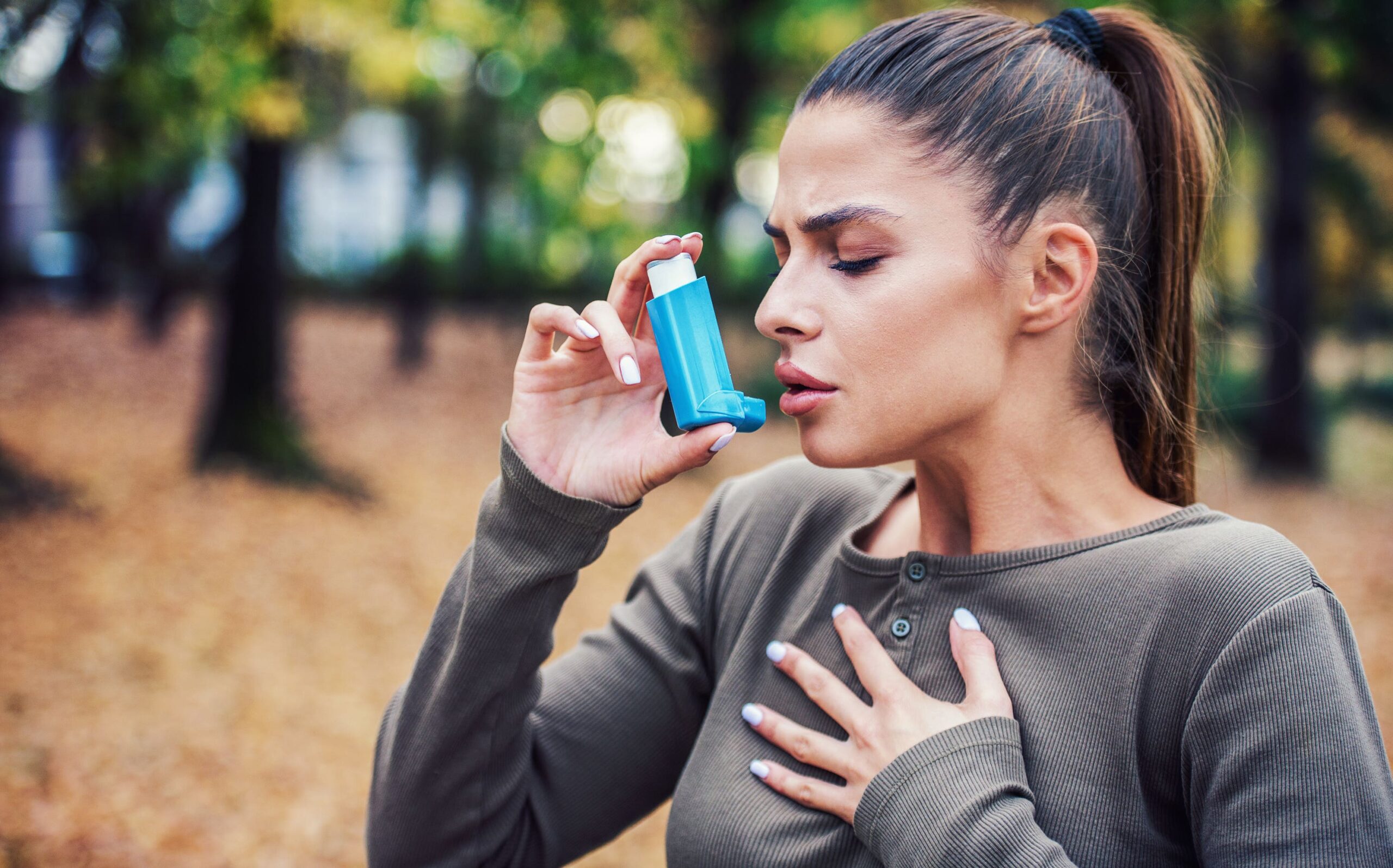Warmer weather means longer days, trips to the beach, and a chance to go outdoors and enjoy the UK’s green spaces, but changes in temperature can sometimes trigger asthma symptoms.
“Warmer weather can affect long-term respiratory conditions such as asthma, bronchiectasis and Chronic Obstructive Pulmonary Disease (COPD) by causing symptoms to flare up,” says LloydsPharmacy pharmacist Pareena Patel.
“This can be a result of dehydration, high humidity levels and a rise in the pollen count.”
If you are going abroad this summer, Patel says asthma sufferers should consider the climate they’re travelling to and should try to avoid visiting landmarks at higher altitudes, including mountainous areas.
“Here there will be lower oxygen levels, and this can make breathing more difficult,” she says.
“Some people don’t know that heat and humidity also increase allergy symptoms.
Many allergy triggers like pollen, dust and mould are more prevalent and can trigger your asthma symptoms.”
Knowing the best ways to manage your asthma during the summer months can help deter them and allow you to enjoy the summer season. Here, Patel shares her top tips for managing asthma as the weather hots up…
1. Don’t get caught out
If you know you’re going to be (or have to be) outside when it’s warm, plan ahead and make sure you have everything you need.
“You can better manage your asthma symptoms by making sure you take your preventative medications, including your preventative inhaler, every day as prescribed by your GP,” says Patel.
“It is also important to go for regular asthma reviews to ensure you are using your inhalers correctly, and taking medication in the right doses.”
She adds: “Try to keep your inhalers with you at all times and out of direct sunlight, especially places known to get particularly hot, such as a car.”
2. Be aware of hayfever and plan ahead
“Try to not to let the heat catch you off guard; there are many ways you can be ahead of the hot weather,” says Patel.
“During hayfever season and the warmer months, your asthma symptoms may become more prevalent.
“Pollen allergies can make breathing more difficult,” so if you are struggling with your breathing, speak to your local pharmacist or GP for advice.
Patel suggests checking the pollen count before heading outside too, and if there is poor air quality or a high count, it may be best to stay indoors.
She continues: “Drug-free therapy is a way of helping to treat symptoms without taking medication. It involves using natural techniques or products to alleviate your symptoms.
“This approach used on its own or combined with medication can be a more sustainable way of helping to manage your condition.” She suggests trying LloydsPharmacy’s Allergy Reliever (lloydspharmacy.com, £19.99).
3. Avoid polluted areas
Pollution can also cause symptoms such as irritated airways, breathlessness and coughing.
“Long-term, high pollution levels can even lead to lung conditions including asthma and lung cancer,” says Patel. “You may be more at risk of pollution aggravating symptoms if you have a long-term respiratory condition.
“You can help manage your symptoms by avoiding pollution hot spots and reducing or avoiding strenuous outdoor exercise.”
4. Have a chat with your pharmacist
If you know your asthma symptoms increase in the summer season or can be triggered by warm weather or hayfever, Patel advises speaking to your pharmacist who will be able to give advice on what the best treatment is, tailored to you.
“LloydsPharmacy offers advice and information on medications you are currently taking and can help with any questions you may have about your inhaler technique.
“You should also attend an annual asthma review appointment with your GP or Asthma Nurse,” she adds.





